Young Women’s Leadership Development Courses
Buland Iradey, Naye Kaushal, Nayi Raahein and Bekhauf Nazrein are our flagship programmes. The purpose of these programmes is three-fold: to build perspective on women’s rights and gender equality, to impart and consolidate digital skills, and to provide experience in community action. The programmes also use technology to build leadership among marginalised young girls and women – those who combat patriarchal barriers as an everyday matter. We put to work technology, the great enabler of our age, to both help these girls access information and acquire the skills that help reduce the digital gender divide and make silenced voices heard.
Our mission is also to build community-level leaders. The learning from the programmes builds confidence in these young women, enabling them to first challenge gender norms at home. Subsequent access to employment opportunities and the intellectual and emotional means to push back against gender-based violence or discrimination transforms their lives. And change in individual women’s lives leads to change within the community.
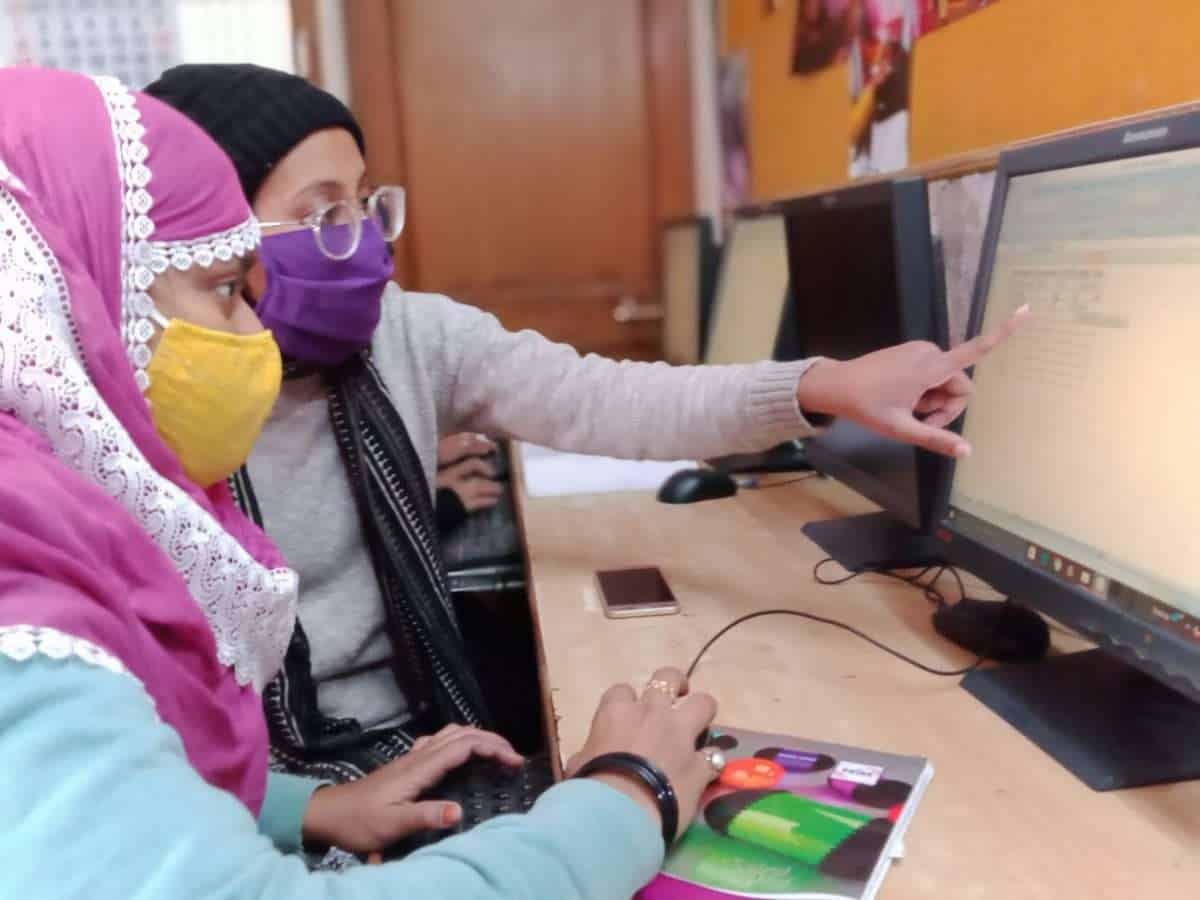
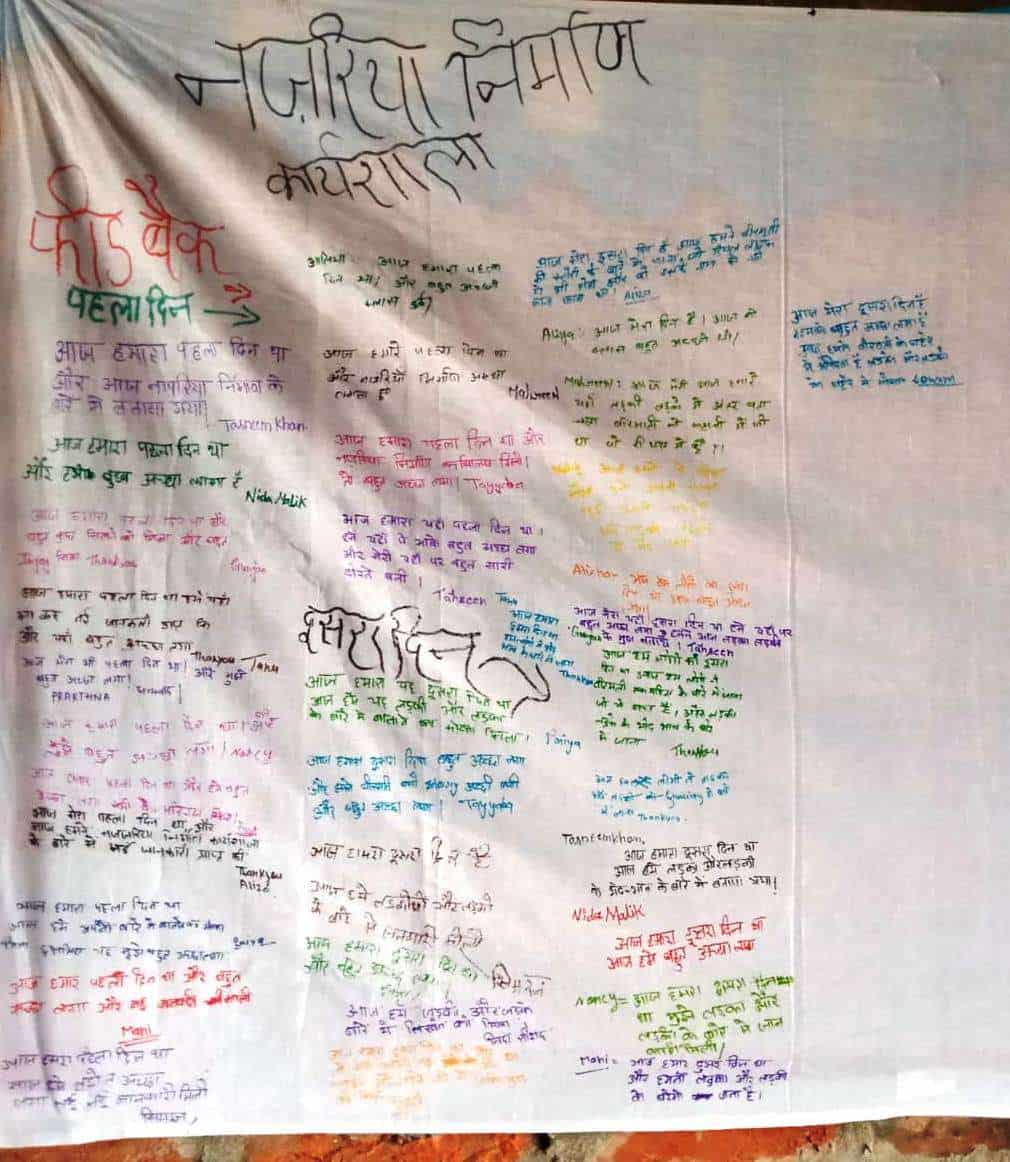
We launched Buland Iradey (which translates to ‘Firm Resolve’), our first leadership building programme, in 2013 with girls and young women in Uttar Pradesh. Between 2013 and 2017, a total of 127 girls completed the course, held each year for about 15 days a month.
The course has three components:
(i) Perspective-building: to develop trainees’ understanding of patriarchy; introduce them to issues related to gender, identity and sexuality; and expose them to current debates on gender issues
(ii) Basic digital skills: to provide skills such as typing and operating a computer, navigating the internet and social media, photography and videography
(iii) Community engagement: to impart basic skills of community mobilisation, such as understanding local problems; conducting sessions and disseminating information on schemes and entitlements and gender based violence.
What brings alive these content areas is the pedagogy used. The course is an immersive experiential learning experience, which uses a range of pedagogic tools such as games, role play, group discussions, hands-on assignments such as taking photographs and making short videos, running training sessions and conducting surveys. Gender perspective-building is woven into the technical training sessions.
Our pedagogy aims to build the confidence of young women who may have internalized inhibiting stereotypes (such as the statement “girls are not technologically capable”). Our community-level action revolves around providing participants the opportunity to deep-dive into fieldwork in the social sector.
Our alumni have gone on to successfully pursue their own careers and make their own personal choices. Many now work in a range of professions. Others have fought to continue their education, taken steps to combat violence in their homes or voiced their opinions in the typically familial preserve of deciding marriage partners. See More
We initially invited external resource persons but now have an internal training team drawn from our alumni pool. In fact, most of the Sadbhavana team is drawn from this pool.
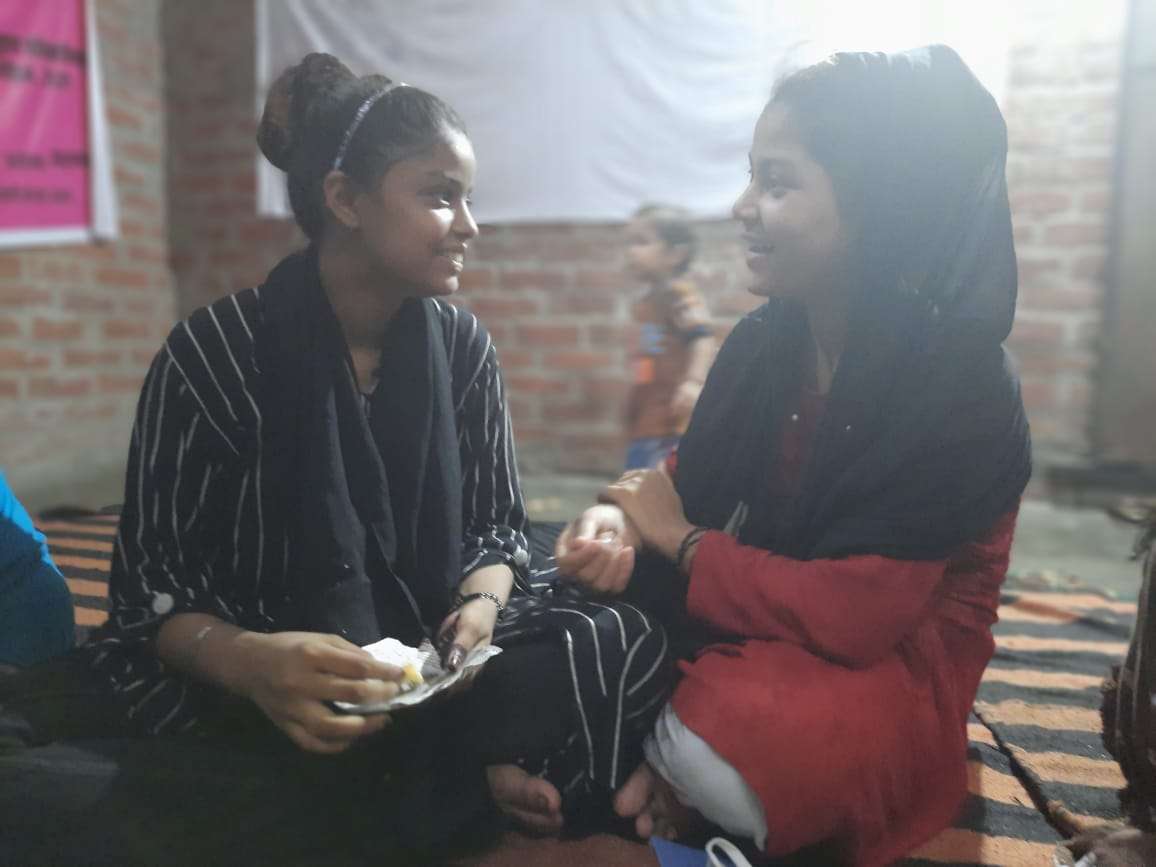
This technical skill development course – ‘New Skills, New Paths’ – builds on the basic leadership course. This year-long course, started in 2018, is conducted with young women who want to enter the world of work outside the home. It was designed specifically to address the aspirations of young women who repeatedly expressed their desire to become financially independent. Between 2018 and 2020, a total of 50 girls have completed this course.
The programme offers job and technical skill development along with feminist perspective-building. Sessions include career counselling, developing communication and interview skills, digital and social media management (photography and basic graphic design), résumé writing, spoken English, basic computer learning and gender justice. Participants are given job market exposure and practical training through internships. Once the young women enter male-dominated spaces in their areas of employment – as call centre or computer operators, at administrative jobs, as nursing aides or shop assistants, as teachers and tutors – they are able to navigate them fearlessly and create their own professional identities. Women interested in entrepreneurship, such as setting up small online businesses, can likewise apply these skills in those ventures. All graduates continue to be mentored even after completing the course.
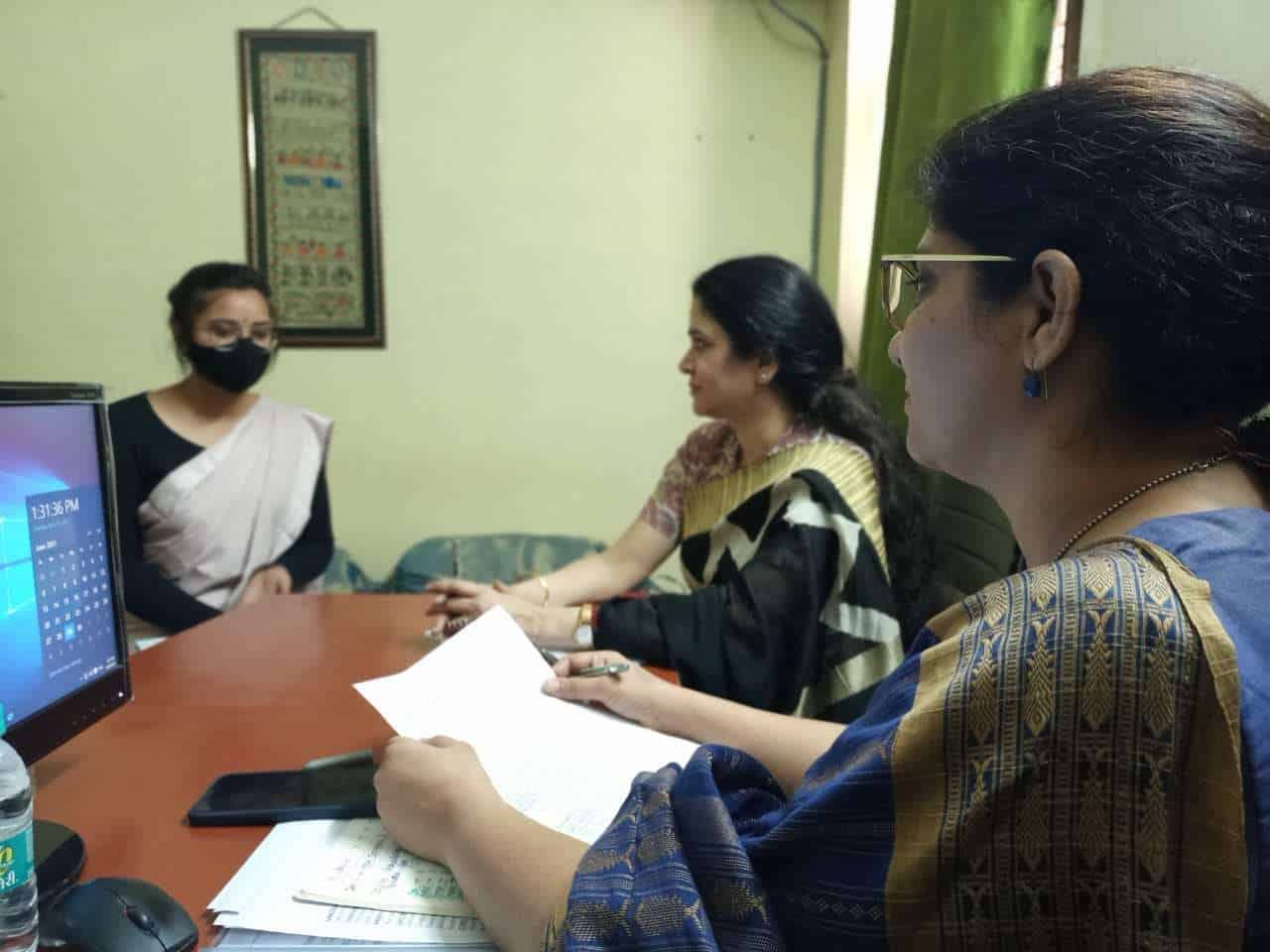
The advanced leadership course, Bekhauf Nazrein (‘The Fearless Gaze’) is conducted with young adult women who have emerged as leaders and become mentors for girls and women in the community. The goal of the programme is to further nuance their understanding of feminist practice and give them opportunities to act as influencers. Three batches, with a total of 53 girls, have completed this programme since it was started in 2016.
Apart from advancing the work of previous courses – gender perspective-building and technical skill-development – an important aspect here is field work. This is where the women put their knowledge to work by training young girls at our Kishori Mohalla Manch centres, helping them make connections between their individual lives and larger issues, including the broader women’s movement. The aim is to empower the girls and women – all from marginalised communities – so that their voices are heard in mainstream debates and policy deliberations.
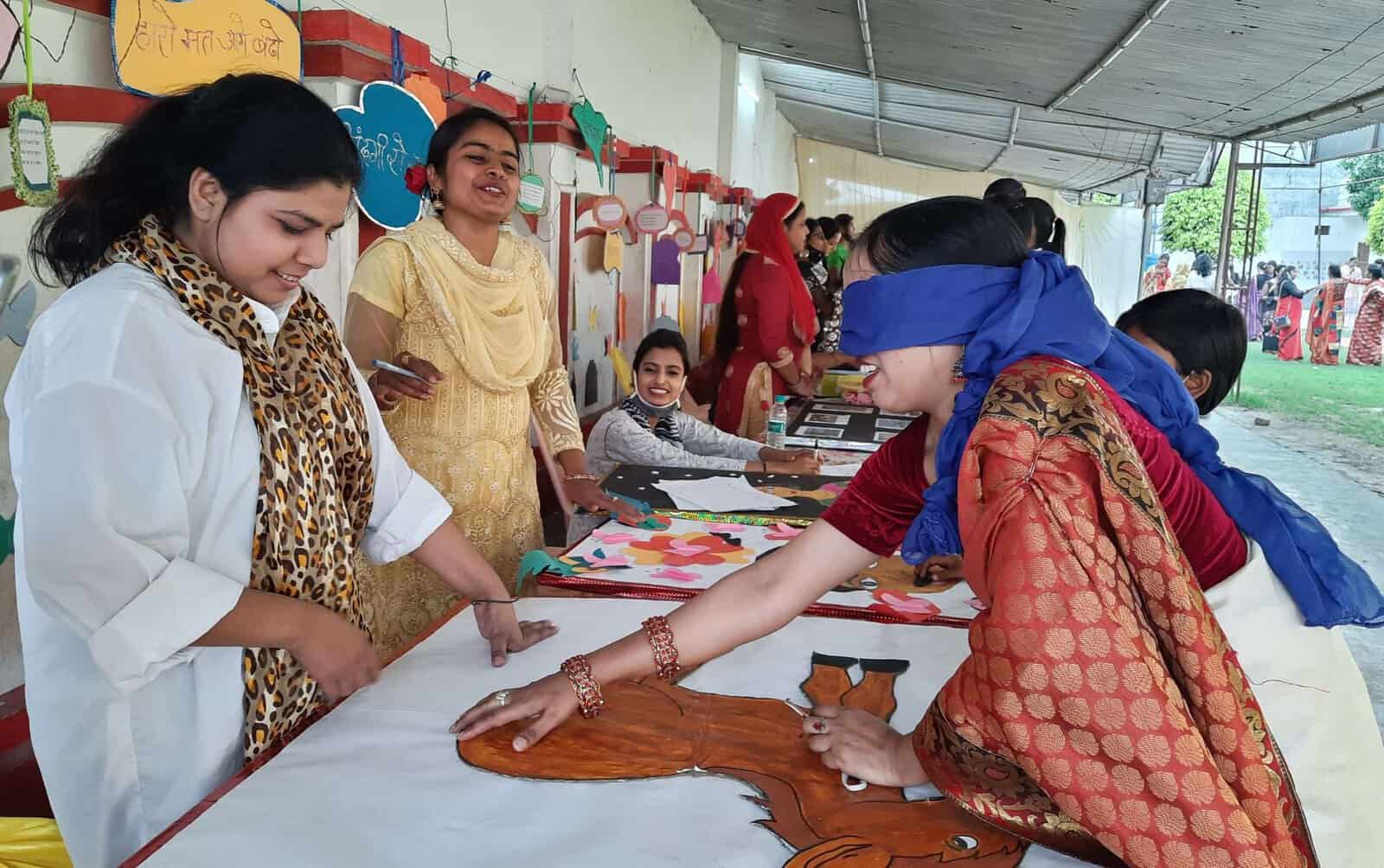
Empowering Adolescent Girls at the Community Level
Our programme to empower adolescent girls at the community level employs three main strategies – building community-level forums, establishing leadership centers and creating gender awareness through public events, campaigns etc. These interventions with adolescent girls ground our gender awareness and leadership-building work at the community level.
This initiative was started in 2017 to encourage girls to step out of their homes to understand and exercise their rights with regard to mobility, education, and personal choices such as marriage. Organising the young girls to join forces at the neighbourhood level, the Kishori Mohalla Manch (which translates to ‘adolescent girls' neighbourhood forum’) enabled them to support each other and take collective action.
We now have 50 such forums in as many low-income mohallas, or neighbourhoods, in Old Lucknow. They are organised into five clusters, each Mohalla Manch consisting of a core group of 10-15 girls who meet regularly. A total of 600 girls is directly associated with these collectives.
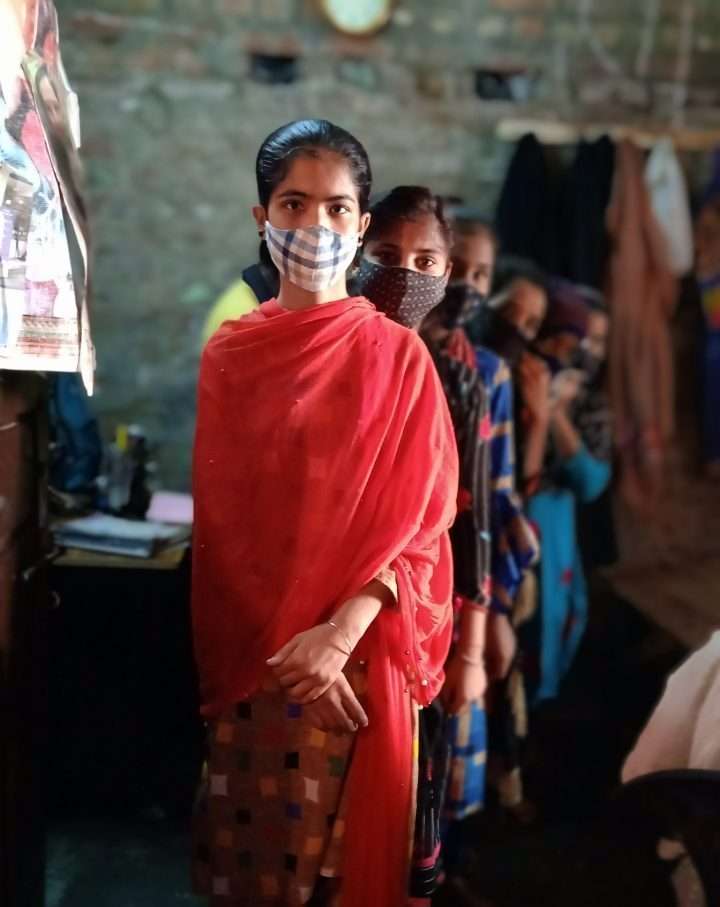
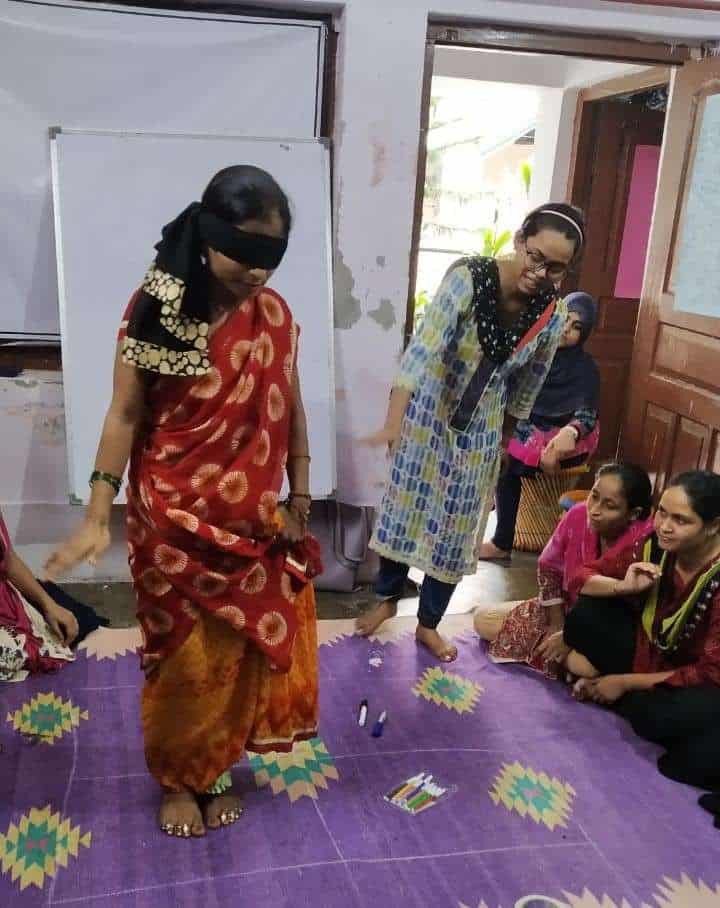
The Kishori Mohalla Manch initiative complements the in-depth leadership courses we run by creating a sustained presence at the community level and enables us to directly impact the lives of participating girls. Our field mobilisers implement a structured gender curriculum with the girls and support them in addressing their problems. The girls’ understanding of gender roles and stereotypes is developed through monthly activity-based sessions. This then enables them to challenge the status quo that upholds patriarchal structures and barriers as well as encourages them to express themselves more freely. For instance, shy Zeba* from Garhikanaura began to talk openly about love and sexuality while Fatema* in Radhagram said that she questioned her parents about why her brothers, but not her, were allowed to use their cellphones at night.
We designed a special leadership development programme for Mohalla Manch leaders, which would help make each manch independent enough to both address its own issues as well as build synergies with the others. Two leaders from each manch are selected and receive an intensive 15-day training. Conducting these trainings at the community level has expanded and further established our programme. Forum leaders have been effective in mobilising other girls and taking a lead in addressing issues.
Some of Our Leaders
Kanchan*, 17, joined the Daliganj manch in 2019. Her family circumstances were troubled; her alcoholic father was violent towards her mother and sisters. Receiving several inputs after becoming a manch leader, Kanchan became increasingly self-confident. One day she plucked up the courage to confront her father and tell him she would report him. Her mother is a domestic worker and Kanchan worked alongside her to earn the money to pay for her own education. Kanchan participates actively in forum activities and supports other girls in taking up issues.
Nashara, 18, is a manch leader from the Jantanagri cluster. She joined the manch in 2020 and since then has taken up several community-level initiatives. During the coronavirus pandemic she took a lead in organising Sadbhavana’s relief efforts, identifying vulnerable families and ensuring that they received rations from Sadbhavana as well as through the government’s relief schemes. She later took on the responsibility of running Sadbhavana’s vaccination campaign, leading crucial initiatives such as addressing vaccination hesitancy and helping women negotiate the digital registration.
*name changed for identity protection
The word ‘Nazariya’ means perspective. For us, it is a way of seeing the world from a feminist perspective.
The Nazariya Leadership Centres are located at the community level, designed as safe, accessible and inviting spaces for girls and women to gather and learn. The centres were equipped with resources such as computers, internet, books and newspapers which girls and women could access easily. They came to practise their typing, to surf the internet, or simply to interact with friends. These were also spaces where they felt free to share personal experiences and concerns without judgement and seek emotional support from each other. The centres were where women started to talk about gender-based violence.
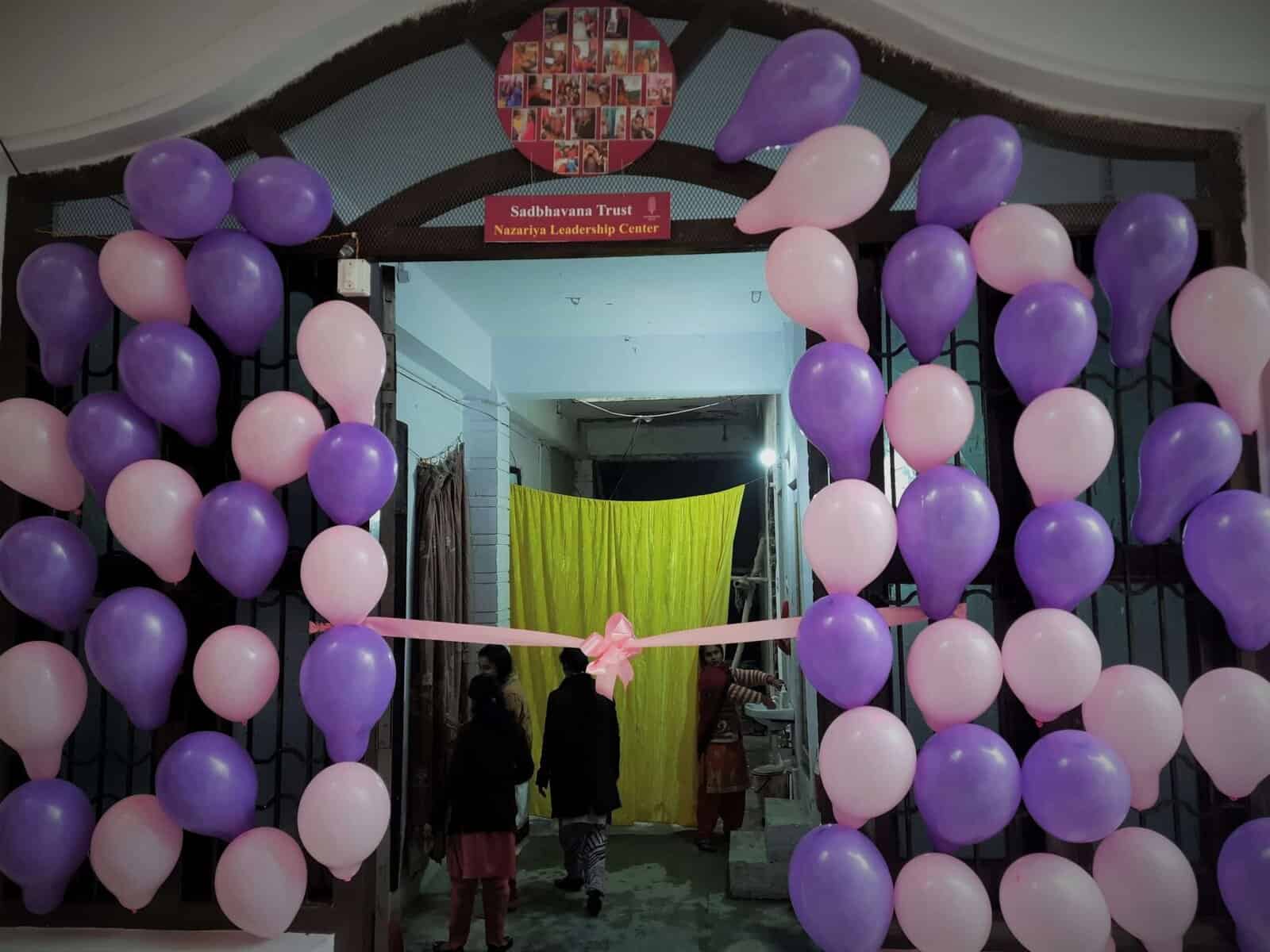
The centres were also nodal points to facilitate year-round activities, which ranged from information dissemination sessions on government schemes, weekly film screenings and monthly workshops on gender issues to reading and storytelling sessions.
We set up Nazariya Leadership Centres in two of our field areas in Lucknow, Daliganj and Garhi Kanaura, in 2018. Working with marginalised women and girls from low-income areas, we realised that mobility was a challenge for many of them – they were either unable to travel far from their homes to attend our programmes, or not ‘permitted’ to do so by their families, or simply found commuting unaffordable. We started these centres in response to these challenges and found that they enhanced our outreach in the community. We regularly reached as many as 235 girls, of which 101 participated in the job skill development courses offered at the centres.